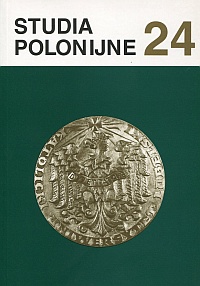Polish Education in Soviet Podole 1917-1925 − a History
Main Article Content
Abstract
Hard times and fear of punishment for being Polish have forced thousands of Poles living in Ukraine to hide their true descent and nationality. On one hand the First World War and the October Revolutin brought independence to the Polish Republic. But on the other they left thousands of Polish citizend outside Polish borders. Those people understood the ongoing changes and tried to influence their course. As a result organisation of a network of Polish schools commenced and effects of that action were impressive.
The right of every minority to shape independently their national traditions, declared solemnly by Ukraine, soon turned out to be fictuous. When the Soviet system of law came in force communists became true masters of the country. They knew only too well that school was the sole institution capable of fulfilling the program of sovietisation of the youngest, for whom application of the method of “breaking and re-forging” of national identity was not an option.
In 1923 and 1924 a new Polish educational system was developed. Its formal basis was the 1918 resolution of the Commisariat of Education, which foreseen foundation of schools for ethnic minorities “wherever there are enough pupils of a given nationality to run such a school”.
Describing the state of the Polish educational system in Ukraine the Polish Office came to conclusion that in many towns of the Right-Bank Ukraine Polish schools were being closed by local authorities despite the protests of Polish Offices and the representatives of Polish communities.
Consequently forced policy has brought the expected effects. In fact the scale of sovietisation was moderate compared to educational successes of the Church and the Polish Executive Committee, nevertheles it was a sort of success: Polish schools eventually paved the way of the communist ideology to the very heart of Polish borderland circles, highly reserved and distrustful to any authority of russian origin. As an organised system closely connected with local Polish communities it produced yet another effect: it became an important factor of integration and preservation of the national identity of Polish minority in Ukraine.

